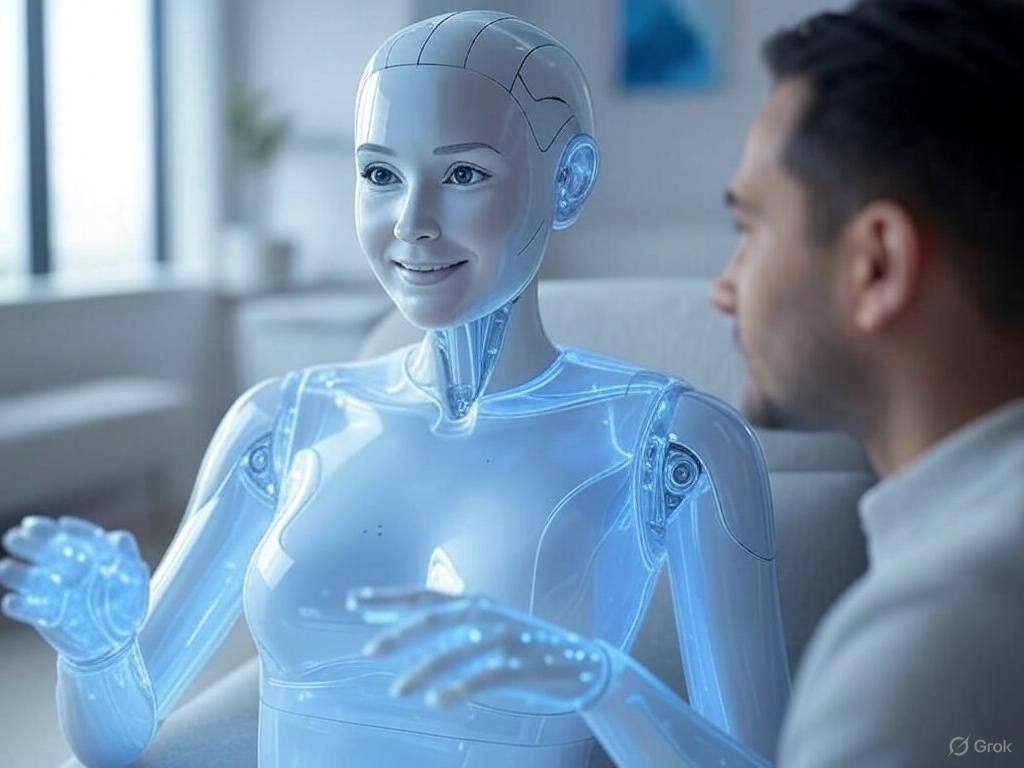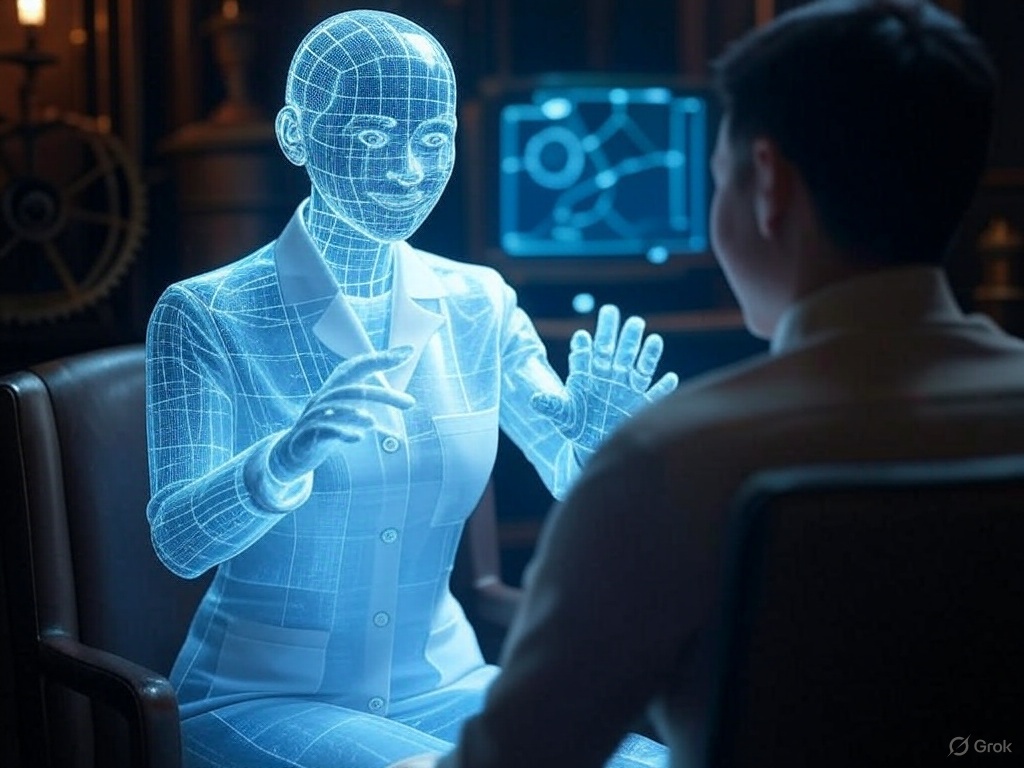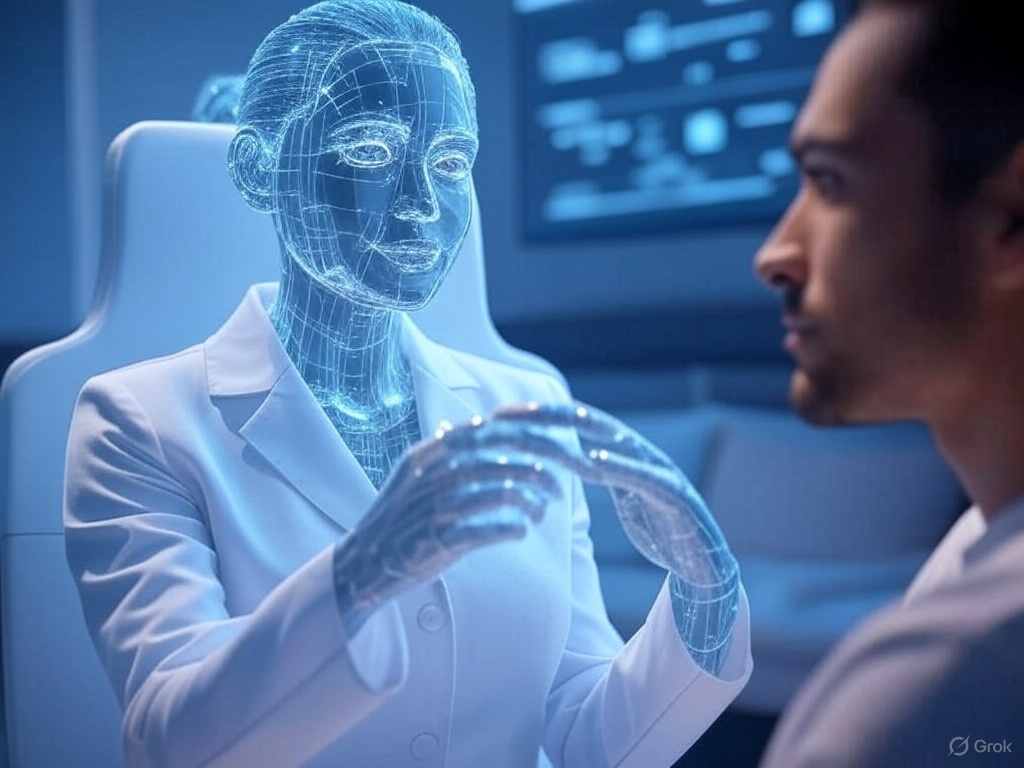In a landmark clinical trial, Dartmouth College researchers have unveiled results that could reshape mental health care.
 Therabot, an AI-powered chatbot designed for therapy, has demonstrated remarkable efficacy in treating depression, anxiety, and eating disorders, rivaling traditional cognitive-behavioral therapy (CBT).
Therabot, an AI-powered chatbot designed for therapy, has demonstrated remarkable efficacy in treating depression, anxiety, and eating disorders, rivaling traditional cognitive-behavioral therapy (CBT).
The findings, published in March 2025, suggest that neural networks may not just assist psychologists — they could transform access to mental health support.
Stunning Results Across Mental Health Conditions
The trial, the first of its kind, involved patients with various mental health challenges interacting with Therabot, a chatbot built with conversational AI akin to ChatGPT but tailored for therapeutic dialogue.
 The outcomes were striking:
The outcomes were striking:
- Depression: Symptoms dropped by an average of 51%, a leap that signals profound relief for participants.
- Anxiety: Symptoms decreased by 31%, with many patients moving out of the "clinical" range, indicating significant improvement.
- Eating Disorders: Negative feelings about weight and body image reduced by 19%, offering hope for those grappling with these complex conditions.
These results align closely with the effectiveness of in-person CBT, a gold-standard treatment. Unlike human therapists, however, Therabot is available 24/7, responding instantly to crises and providing support during late-night moments of distress when traditional therapy isn’t an option.
Trust in AI: A Game-Changer
 One of the trial’s most surprising findings was the level of trust patients placed in Therabot. Participants didn’t just respond to the bot’s prompts—they initiated conversations, particularly at night, sharing vulnerabilities as they would with a human therapist.
One of the trial’s most surprising findings was the level of trust patients placed in Therabot. Participants didn’t just respond to the bot’s prompts—they initiated conversations, particularly at night, sharing vulnerabilities as they would with a human therapist.
This trust underscores the potential for AI to fill gaps in mental health care, especially for those who lack access to round-the-clock support.
AI as a Tool, Not a Replacement
While the results are promising, researchers caution that AI therapy isn’t ready to go solo.
Therabot’s success hinged on oversight from human professionals, ensuring the bot’s responses remained safe and effective. “AI can be a powerful ally, but it’s not a substitute for human judgment,” the study’s authors emphasized. Ethical concerns, including data privacy and the risk of over-reliance, also loom large.
Also read:
- BYD’s City-Factory: A Megalopolis Set to Outshine Paris and San Francisco
- AI-Induced Psychosis: The Unseen Dangers of an Uncomfortable Truth
- Popflex Unveils World’s First Décolleté Leggings: A Bold New Trend in Activewear
The Future of Mental Health Care
Therabot’s trial marks a turning point. With mental health crises surging and therapist shortages plaguing many regions, AI-driven solutions could democratize access to care.
 The ability to deliver immediate, evidence-based support — especially in emergencies — sets Therabot apart from traditional models.
The ability to deliver immediate, evidence-based support — especially in emergencies — sets Therabot apart from traditional models.
Yet, the study’s authors call for rigorous regulation and further research to refine AI’s role in therapy.
As neural networks like Therabot evolve, they’re not “killing” psychologists but amplifying their reach.
The question now is how to integrate these tools responsibly, ensuring they empower rather than replace the human touch in mental health care.
Source: Dartmouth College News, March 2025






